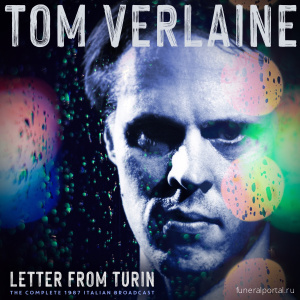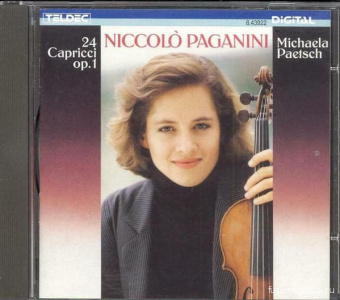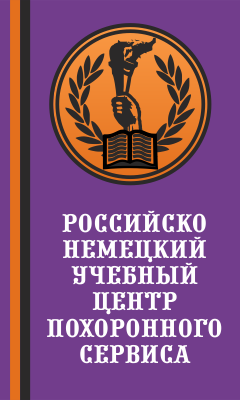By Jessica Campbell
Poetry read at a funeral is an eloquent way to pay tribute to the life and legacy of someone you love. For the bereaved, poems about dying, the pain of loss, grief, mourning, the afterlife, or rebirth can bring comfort and be a source of inspiration and hope.
Find a meaningful poem to include in a funeral or memorial service, as well as poetry to help you cope with a loved one’s death. Here is a collection of some of the best funeral poems of all time, organized by theme, sentiment, and relationship to the deceased:
Poems About Mothers
December, 1919
Claude McKay
Last night I heard your voice, mother,
The words you sang to me
When I, a little barefoot boy,
Knelt down against your knee.
And tears gushed from my heart, mother,
And passed beyond its wall,
But though the fountain reached my throat
The drops refused to fall.
‘Tis ten years since you died, mother,
Just ten dark years of pain,
And oh, I only wish that I
Could weep just once again.
Her Mother’s Epitaph
Anne Bradstreet
Here lies
A worthy matron of unspotted life,
A loving mother and obedient wife,
A friendly neighbor, pitiful to poor,
Whom oft she fed, and clothed with her store;
To servants wisely aweful, but yet kind,
And as they did, so they reward did find:
A true instructor of her family,
The which she ordered with dexterity,
The public meetings ever did frequent,
And in her closest constant hours she spent;
Religious in all her words and ways,
Preparing still for death, till end of days:
Of all her children, children lived to see,
Then dying, left a blessed memory.
Mother
Lola Ridge
Your love was like moonlight
turning harsh things to beauty,
so that little wry souls
reflecting each other obliquely
as in cracked mirrors . . .
beheld in your luminous spirit
their own reflection,
transfigured as in a shining stream,
and loved you for what they are not.
You are less an image in my mind
than a luster
I see you in gleams
pale as star-light on a gray wall . . .
evanescent as the reflection of a white swan
shimmering in broken water.
Mother o’ Mine
Rudyard Kipling
If I were hanged on the highest hill,
Mother o’ mine, O mother o’ mine!
I know whose love would follow me still,
Mother o’ mine, O mother o’ mine!
If I were drowned in the deepest sea,
Mother o’ mine, O mother o’ mine!
I know whose tears would come down to me,
Mother o’ mine, O mother o’ mine!
If I were damned of body and soul,
I know whose prayers would make me whole,
Mother o’ mine, O mother o’ mine!
To My Mother
Lucretia Maria Davidson
O thou whose care sustained my infant years,
And taught my prattling lip each note of love;
Whose soothing voice breathed comfort to my fears,
And round my brow hope’s brightest garland wove;
To thee my lay is due, the simple song,
Which Nature gave me at life’s opening day;
To thee these rude, these untaught strains belong,
Whose heart indulgent will not spurn my lay.
O say, amid this wilderness of life,
What bosom would have throbbed like thine for me?
Who would have smiled responsive?—who in grief,
Would e’er have felt, and, feeling, grieved like thee?
Who would have guarded, with a falcon-eye,
Each trembling footstep or each sport of fear?
Who would have marked my bosom bounding high,
And clasped me to her heart, with love’s bright tear?
Who would have hung around my sleepless couch,
And fanned, with anxious hand, my burning brow?
Who would have fondly pressed my fevered lip,
In all the agony of love and wo?
None but a mother—none but one like thee,
Whose bloom has faded in the midnight watch;
Whose eye, for me, has lost its witchery,
Whose form has felt disease’s mildew touch.
Yes, thou hast lighted me to health and life,
By the bright lustre of thy youthful bloom—
Yes, thou hast wept so oft o’er every grief,
That wo hath traced thy brow with marks of gloom.
O then, to thee, this rude and simple song,
Which breathes of thankfulness and love for thee,
To thee, my mother, shall this lay belong,
Whose life is spent in toil and care for me.
To My Mother
Edgar Allan Poe
Because I feel that, in the Heavens above,
The angels, whispering to one another,
Can find, among their burning terms of love,
None so devotional as that of “Mother,”
Therefore by that dear name I long have called you—
You who are more than mother unto me,
And fill my heart of hearts, where Death installed you
In setting my Virginia’s spirit free.
My mother—my own mother, who died early,
Was but the mother of myself; but you
Are mother to the one I loved so dearly,
And thus are dearer than the mother I knew
By that infinity with which my wife
Was dearer to my soul than its soul-life.
Sonnets Are Full of Love
Christina Rossetti
Sonnets are full of love, and this my tome
Has many sonnets: so here now shall be
One sonnet more, a love sonnet, from me
To her whose heart is my heart’s quiet home,
To my first Love, my Mother, on whose knee
I learnt love-lore that is not troublesome;
Whose service is my special dignity,
And she my lodestar while I go and come.
And so because you love me, and because
I love you, Mother, I have woven a wreath
Of rhymes wherewith to crown your honored name:
In you not fourscore years can dim the flame
Of love, whose blessed glow transcends the laws
Of time and change and mortal life and death.
Telling the Bees
Lizette Woodworth ReeseA Colonial Custom
Bathsheba came out to the sun,
Out to our wallèd cherry-trees;
The tears adown her cheek did run,
Bathsheba standing in the sun,
Telling the bees.
My mother had that moment died;
Unknowing, sped I to the trees,
And plucked Bathsheba’s hand aside;
Then caught the name that there she cried
Telling the bees.
Her look I never can forget,
I that held sobbing to her knees;
The cherry-boughs above us met;
I think I see Bathsheba yet
Telling the bees.
Transfiguration
Louisa May Alcott
Mysterious death! who in a single hour
Life’s gold can so refine,
And by thy art divine
Change mortal weakness to immortal power!
Bending beneath the weight of eighty years,
Spent with the noble strife
Of a victorious life,
We watched her fading heavenward, through our tears.
But ere the sense of loss our hearts had wrung,
A miracle was wrought;
And swift as happy thought
She lived again,— brave, beautiful, and young.
Age, pain, and sorrow dropped the veils they wore
And showed the tender eyes
Of angels in disguise,
Whose discipline so patiently she bore.
The past years brought their harvest rich and fair;
While memory and love,
Together, fondly wove
A golden garland for the silver hair.
How could we mourn like those who are bereft,
When every pang of grief
Found balm for its relief
In counting up the treasures she had left?—
Faith that withstood the shocks of toil and time;
Hope that defied despair;
Patience that conquered care;
And loyalty, whose courage was sublime;
The great deep heart that was a home for all,—
Just, eloquent, and strong
In protest against wrong;
Wide charity, that knew no sin, no fall;
The spartan spirit that made life so grand,
Mating poor daily needs
With high, heroic deeds,
That wrested happiness from Fate’s hard hand.
We thought to weep, but sing for joy instead,
Full of the grateful peace
That follows her release;
For nothing but the weary dust lies dead.
Oh, noble woman! never more a queen
Than in the laying down
Of sceptre and of crown
To win a greater kingdom, yet unseen;
Teaching us how to seek the highest goal,
To earn the true success,—
To live, to love, to bless,—
And make death proud to take a royal soul.









